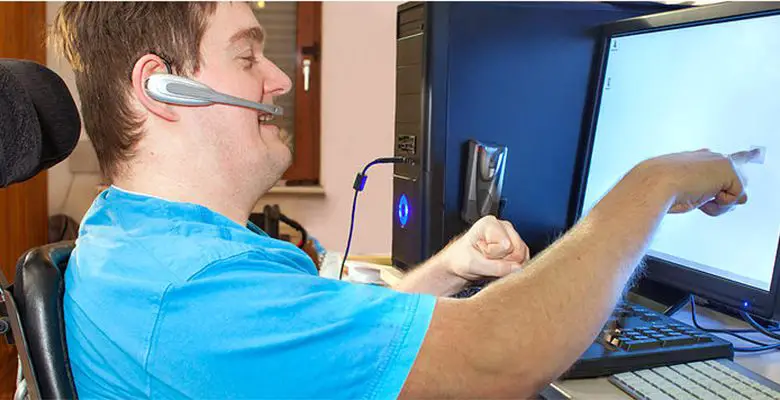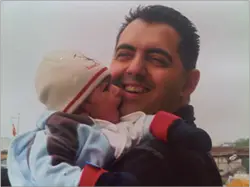
Q&A with Hardeep Rai from Kaleidoscope Investments
Hardeep Rai is the founder and Managing Director of Kaleidoscope Investments. An organisation that invests, supports and empowers disabled people to become successful entrepreneurs. His life changed in 2006 when his son Eshan was born…
Due to last minute birthing complications there was a lack of oxygen to Eshan’s brain and as a result he received a severe brain injury, resulting in significant learning difficulties and physical disability. However, this did not stop Hardeep. His experience, together with meeting Shane Bratby, founder of Disabled Entrepreneurs motivated Hardeep to come up with an idea of how he could assist other disabled people to turn business dreams into reality.
Late in 2014, he set up Kaleidoscope Investments. Although a budding entrepreneur, Hardeep started his life in Financial Services and has enjoyed a career spanning over 20 years in this industry. He has worked for Hedge Funds, Wealth Managers and Private Equity firms. During this time he also secured a job working with James Caan (Ex-Dragon Dens) for two years while running one of his businesses at Hamilton Bradshaw. I caught up with him to find out more about his business and why he set it up.
 How does your company aim to assist disabled entrepreneurs looking to start up their own business?
How does your company aim to assist disabled entrepreneurs looking to start up their own business?
Kaleidoscope Investments is designed to offer free advice and guidance to any person with a disability that has a business idea. We will listen to everyone that approaches us, and advise them on what we think about their idea. If we like their idea, then they will go through our investment process and all being well, receive an investment to help turn their idea into a business. What we will also provide, importantly, is a team of people around the disabled entrepreneur that will work with them to make their business a success. This is absolutely critical. Many people have wonderful ideas, but most do not know how to turn these into a real business and then help to grow it. We do!
How will/have disabled entrepreneurs benefit from the services that Kaleidoscope Investments offers?
The most important thing I want to achieve is for disabled people to know, there IS someone out there that is prepared to listen to them and their ideas and potentially back them if they have got a good idea. I have met over 80 disabled entrepreneurs already, and the message is consistent. They have never met a company that is seeking to do what Kaleidoscope Investments is seeking to do and they seem to be excited by that. If their idea is not investable then they will be told the reasons why. My hope and aim is that more and more disabled people are able to start their own businesses.
Do you think anyone can be successful if they are taught?
There are most definitely certain things that you can be taught. For instance, we have a growth methodology [that we have developed] that once put into place, becomes an ongoing process. We can help to teach the disabled entrepreneurs about how to grow their businesses and make them a success. However, there is another ingredient that is required and that is the inner drive, passion and self-belief to see your journey through. This, in my opinion, cannot be taught… although I believe you can be inspired by others.
As a successful business owner what are the biggest lessons you have learnt?
The key is to understand yourself as a person, realise that you will not know everything when you begin, and be aware of your weaknesses. You then have to ensure that you surround yourself with the right team of people who will fulfil your weaknesses and bring other added value to the table. If you do not get your team right, you will struggle, so it is very important that you chose the right people for your business and then ensure the incentive structure is fair and that everyone is aligned and motivated. I have also learnt (painfully!) that you need to know when to quit. It is very natural to become emotional about a business idea. It’s ‘your baby’ and you believe it’s going to work. However, if the market is telling you differently and things are not going according to plan, and you feel you have genuinely done your best to turn it around, then you have to know when to let go.
What advice would you give disabled people who are keen to start their own business but don’t know where to go or where to start?
Firstly I would commend them for wanting to do something for themselves and encourage them to drive their idea forward. I would advise them to validate their ideas through doing some in-depth research into the market to see what the competition is doing. They should then ask themselves, why their product or proposition is different. Why should someone buy your product or service over someone else’s? What is your unique selling point? I would then start to speak to some trustworthy friends and family members to get their opinions. If all the above is positive, I would then do one of two things. I would either try to create a business plan and some financials. There are a number of templates available to do this. Or at that stage, I would contact a company like Kaleidoscope Investments who can help you to develop the idea further.
What challenges did you face when setting up your business?
My challenge was convincing investors that this was a credible market and I continue to do this until today. I have noticed investors are very warm to the idea, but some are still a little hesitant when it comes to signing a cheque.
What are your top 5 tips for being a successful entrepreneur?
- You need to understand your character and know what your strengths and weaknesses / limitations are.
- If you have two or three ideas commit to one first and see it through.
- Try your best to find at least one business partner.
- Be crystal clear on your proposition and be able to articulate it within 10 seconds.
- Identify the market that will buy your product and speak to some potential customers to get their feedback on your product or service, and the pricing.
How long did it take you to get your business up and running to where it is now?
I did this part time and it took me 6 months. We have secured some funding and we are looking to commence investing actively from September/October 2015.
What would you say makes Kaleidoscope Investments unique?
There does not seem to be anyone that is doing something similar to what Kaleidoscope Investments is doing, in the way we are proposing to do this. We seem to have created a ‘hybrid’ model where we have a charitable/social enterprise related cause, but are still a private company that will be profit making. Our rewards are primarily based on taking a small share in each business we invest and then performance related thereafter. So there are no upfront fees, fixed fees or hidden fees. We are and will always be, totally transparent. We also have a growth methodology that we have created that is owned by us and unique to Kaleidoscope Investments as it was created by our team.
What would you say are the key factors you have to consider when starting your own business?
The most important thing is to have your own finances in order. Assume, you are not going to earn anything for at least 1 year. So if you can, have 1 year of funds in the bank to cover your day-to-day costs. I would also try your best to find a team of people around you. Finally I would work with a company similar to Kaleidoscope Investments that can provide you with the right advice very early on and do your best not to pay anything for that initial advice.
What has been the highlight of your career so far?
When I secured a job with one of the world’s top business leaders, James Caan in just 4 days. I went for an interview on Friday, had a follow up meeting on Tuesday morning and got offered the job on Tuesday evening. I literally went from Zero to Hero. I will always be very thankful and appreciative to James for the journey that I had with him. It has been life changing… The other highlight for me was when Kaleidoscope was publicised in the BBC Ouch blog on the 11th June. This meant so much to me and was a sense of achievement. I feel now that this cause will gain the profile that it deserves.
How did you come up with the name, Kaleidoscope Investments?
Shane Bratby and I had numerous meetings and we eventually came up with the name Kaleidoscope Investments. We want to see beautiful things being created through a different lens, much like what a Kaleidoscope is.
If anyone wishes to use your services, how can they get in touch?
You can contact us using the following methods:
Website: www.kaleidoscopeinvestments.com
Phone: 07720 242 548
Email: Info@kaleidoscopeinvestments.com
You can also fill in our online contact form on our website or fill in our proposal form and we will get back to you.
If anyone is interested in joining your mentor programme, how can they sign up?
There is a page on our website about mentors and they should contact us via our website once they have read this. You do not have to have a disability to be a mentor.
What are the future plans for your business?
My key aims are to launch as many good start-up businesses as I can over the next 3 – 7 years helping disabled entrepreneurs to fulfil their aims and ambitions. Grow nationally first and then grow the company worldwide.
Upcoming event details
Join Kaleidoscope at their up and coming Disabled Entrepreneurs Conference taking place on 24th July 2015 at RBS offices in London.
Register here for free: www.eventbrite.co.uk
Keep up to date with the progress of the event via our social media pages:
www.facebook.com
Twitter using our dedicated hashtag #DECONLON2015
By Zubee
Get in touch by messaging us on Facebook, tweeting us @DHorizons, emailing us at editor@disabilityhorizons.com or leaving your comments below.